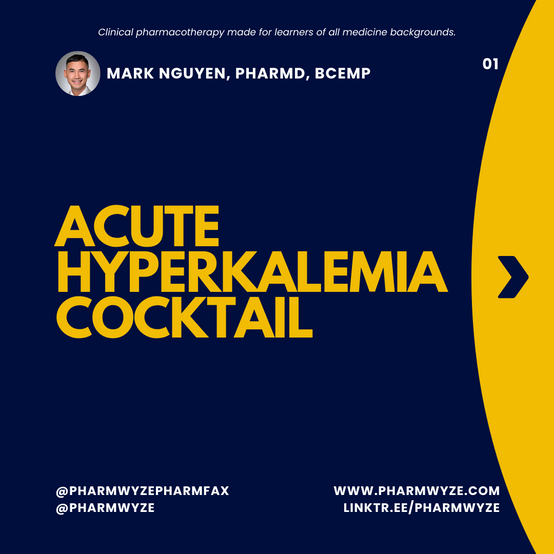Acute Hyperkalemia - #MEDSHED
- Mark Nguyen, PharmD, BCEMP

- Sep 25, 2023
- 1 min read
🍌Acute hyperkalemia is a common electrolyte abnormality that can potentially be life-threatening, if not recognized and treated appropriately.
🍌Acute hyperkalemia is a common electrolyte abnormality that can potentially be life-threatening, if not recognized and treated appropriately.
💉 Treatment consists of stabilizing the myocardium, transiently shifting potassium into the cell, and elimination of potassium.
🐄 Stabilize myocardium with calcium salts.
Calcium chloride 1 gm IV over 2 - 3 mins
Calcium gluconate 3 gm IV over 2 - 3 mins.
Duration 30 - 60 minutes, consider redosing.
Not benign; can contribute to calciphylaxis in chroinic kidney disease patients.
🍬 Insulin/Dextrose Severe hyperkalemia: Insulin regular 10 units IV
Risk of hypoglycemia, Low BMI/initial BG, Insulin naive, Renal insufficiency, ElderlyReduce insulin dose and/or increase dextrose: 0.1 units/kg (up to 10 units) or 5 units IV+ 1 amp D50W: 25 gm; 1 D10W 250mL bag: 25 gm. Consider 50gm total when BG around 100 mg/dL
💩 Potassium binders have limited utility in the the acute setting. The final solution often for critical hyperkalemia is emergent hemodialysis.
📭 Check out my social medias links: linktr.ee/pharmwyze
If you haven’t seen my website, let me know what you think! www.pharmwyze.com















Comments